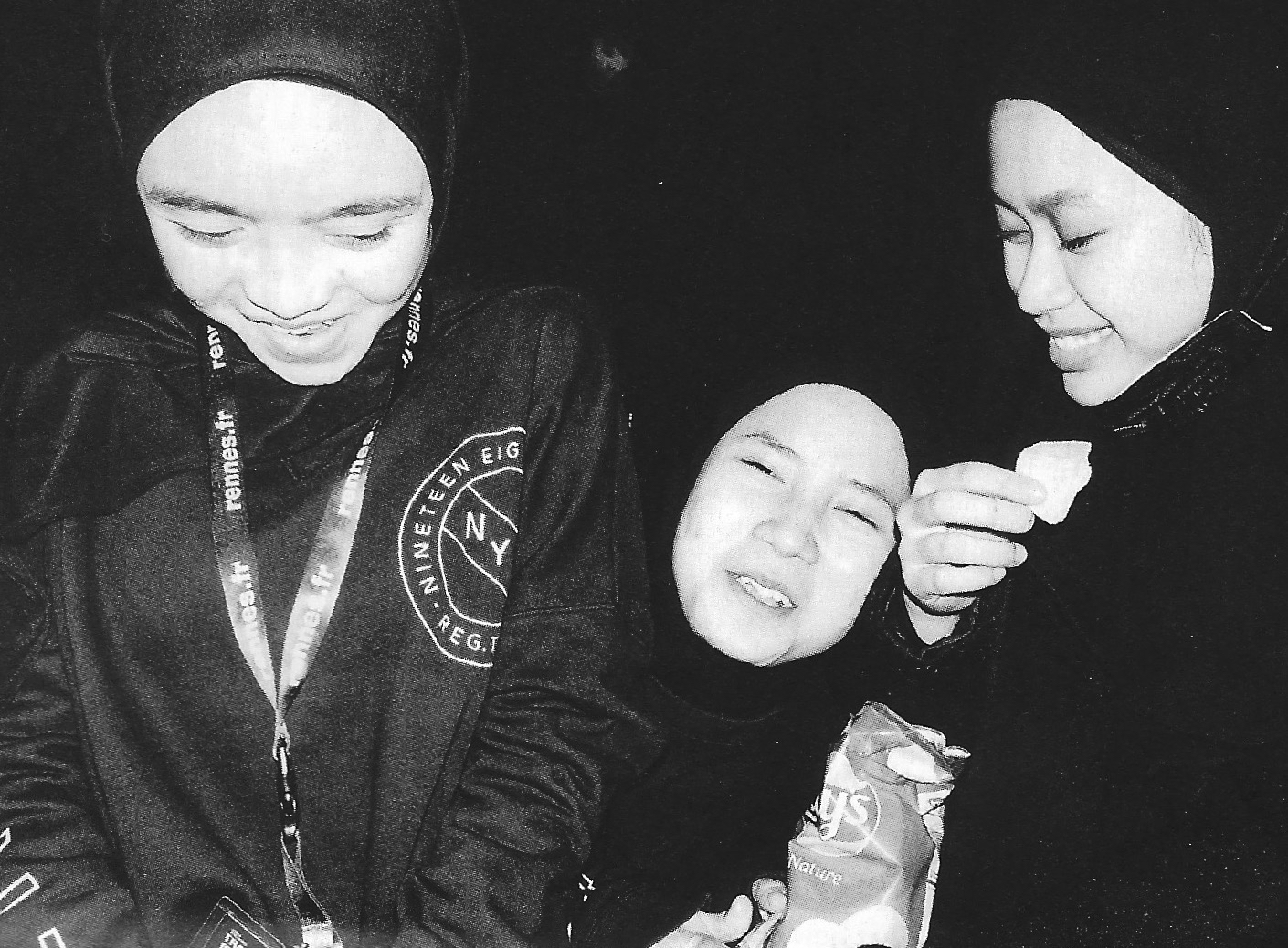Graham Reid | | 3 min read
School Revolution

Over a long lunch recently – where the best conversations happen – a friend and I were talking about how music informs our very being. In her case it was obvious: she's a musician a long time in the game and someone others look up to as a contemporary.
For me it's been the odd bit of tinkling and strum'n' . . . damn! Got that chord wrong. Again!
So in truth, I'm just an appreciative consumer of the gifts others have.
But what she and we agreed is music is an open door to the present, past, history, geography (if you listen to music from Mali, you look it up) and so much more.
We laughed with pity about cost accountants who didn't have a soundtrack to their lives, those who know the price of everything and the value of nothing.
We were being cruel -- I'm sure there are cost accountants who engage with music beyond Norah Jones (whom I unashamedly like, incidentally).
But music for us has been an ever-refreshing input in our lives, as I'm guessing it is with you. If you've bothered to read this far . . .
These WE NEED TO TALK ABOUT columns open down-elevators into odd and unexpected characters in music: a country musician from London's wild East End; teen angels; dangerous white women singing the blues; rural rock'n'roll howlers; people who arrived in various guises or were sad, unwelcome or damaged.
But there they were . . . and among them some heroes and heroines.
But, Voice of Baceprot are among the most unexpected.
Out of West Java, these three hijab-wearing Muslim women – who sing in their local language and English – deliver hard rocking metal thrash (“baceprot” means noisy in Malay-Sudanese) and in 2014 were inspired by hearing System of a Down's 2001's Toxicity album which they found on their school guidance counsellor's PC.
(Clearly guidance counsellors in Singajaya, West Java were more hip than my one ever was.)
That was enough for Marsya, Widi Rahmawati and Euis Siti Aisyah, all still in their early teens, to start learning instruments.
Within a month they'd became singer/guitarist, bassist and drummer respectively and their counsellor Ahba Erza something akin to their manager.
And out of a rural town of fewer than 7000, some 200km from Jakarta, (this is where you get to look it up) they came Voice of Baceprot who've taken their metal noise to Europe and started to make waves beyond the obvious curiosity factor.
It hasn't been easy of course.
As 20-year old Marsya told The Red Bulletin magazine, “In my village, if someone sees me, they turn their back.”
Others who were mean in school are now messaging “when they want something” says Widi.
 VOB, as they are commonly known, come from a region where many of their people believe music is forbidden by Islamic law. Some have accused them of making the devil's music (you might have heard that one before) and their manager has had serious threats.
VOB, as they are commonly known, come from a region where many of their people believe music is forbidden by Islamic law. Some have accused them of making the devil's music (you might have heard that one before) and their manager has had serious threats.
Yet these young women are respectful Muslims, have to endure questions about their faith and “oppression of women” when they tour and . . .
What outsiders don't realise is that metal music is huge in Indonesia.
Anyone who gets out of the tourist bars and fleshpots of Bali or walks a marketplace where tourists won't venture can hear flat-tack local metal everywhere over the noise of motorbikes.
Thrash metal is, for many young Indonesians, the soundtrack of choice: it's a music where anger is an energy in an oppressive and sometimes physically claustrophobic society and . . .
It just feels good and is a release for the musicians and their audience.
Same as metal is anywhere.
VOB are part of a supportive local scene which includes bands like Deadsquad and they get to say what they want, whether it be about the misogyny they know only too well (not every male in the Indonesian metal scene has been welcoming), global war, climate change and of course being young Islamic women in a male dominated society.
Yet, as they consistently say, their God is on their side.
“Whenever I feel worried or scared about something,” says Marysa. “I talk to God., He'll never blame me like other people and He'll always listen to whatever I say.”
“When I pray to my God,” Wada told The Red Bulletin, “it gives me the strength to believe that I can achieve my dreams”.
True that.
One of Voice of Baceprot's biggest songs in Indonesia -- which is also in English – has been . . . God, Allow Me (Please) to Play My Music.
.
To hear Voice of Baceprot's music go here
.
For other articles in the series of strange or interesting characters in music, WE NEED TO TALK ABOUT . . . go here.




post a comment